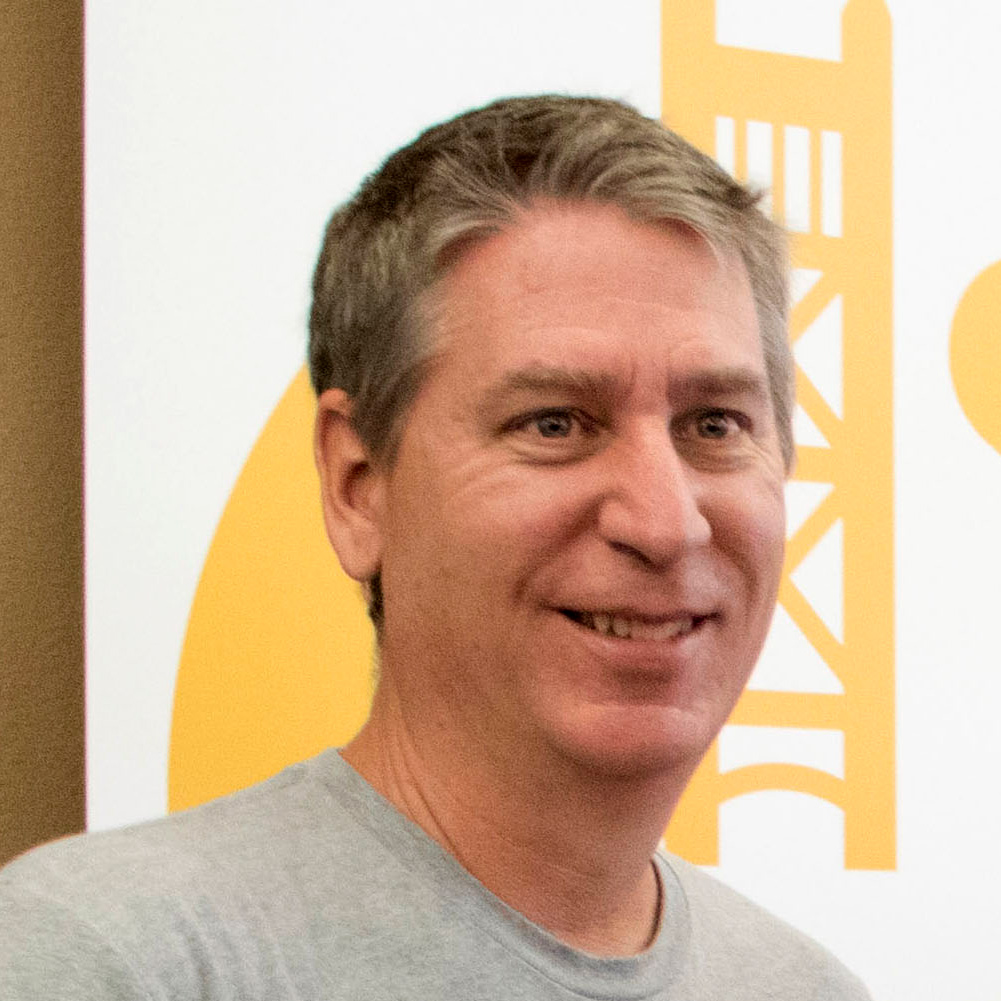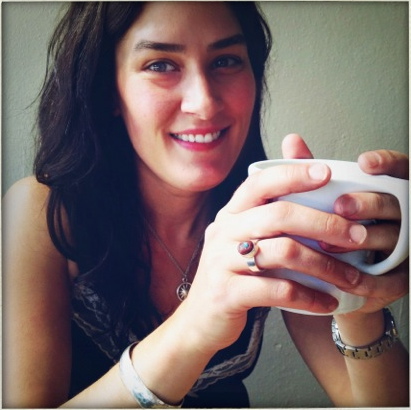
#6 Tell Authentic Stories 1/2
This article is a 2-piece exploration of Ecosystem Building principle #6 Tell your community’s authentic story and belongs to the 7-part series Ecosystem Building 101. The entire series is developed in Fireside Chats with entrepreneurial ecosystem builders around the world.
This resource guide is no longer available. Sign up for Impact Curator to never miss another resource:
The question is which stories will we tell, those reeking of despair or those imbued with a hard-edged hope? […] The job of the moral leader – which is the job of all of us – is to learn to tell the stories that matter, stories that unite and inspire, reinforcing our individual and collective potential and paint a picture of the future that we can build and inhabit together. Stories that matter are not stories that demean, derise, divide, ridicule, belittle, blame, or shame. We must take the harder path of telling stories that hold our truths, both the ugly and the beautiful, while remaining laser-focused on the possible.
Jacqueline Novogratz, 2020, p. 204
Telling a community’s authentic story is one of our key responsibilities, and pleasures, as entrepreneurial ecosystem builders. As champions and cheerleaders of local entrepreneurs and changemakers, we get to sing their praises and shine a light on everything that makes our community unique and a place worth living and investing in.
Telling a community’s authentic story means not only painting a real picture for outsiders, but even for the community itself. In our unique role in the ecosystem, we are in a central position to hold up a mirror to local (social) entrepreneurs and their supporters to remind them that their small business, their idea of success, of change and progress matters. And quite frankly, that might just be my favorite job in entrepreneurial ecosystem building!
Stories impact our perception of self and our community more than we are often able to acknowledge. Turn on the news and you are instantly reminded that we in the Western hemisphere perceive the world as one of scarcity, individualism and unrelenting competition. The power of a positive narrative, then, lies in shining a light on alternative aspects of our community. In Community. The Structure of Belonging, Peter Block explains
Stories can give us a narrative to guide and instruct us. They are crucial to our knowing who we are; they provide a sense of identity. […] We need to distinguish between the stories that give meaning to our lives and help us find our voice, and those that limit our possibility.
Peter Block, 2018, p. 35
The stories we tell ourselves and each other about our entrepreneurial community matter a great deal. In November 2020 during Global Entrepreneurship Week, I invited eight entrepreneurial ecosystem builders to share
- Their understanding of and approaches to storytelling,
- Storytelling practices
- The importance of meaningful and authentic stories
- Formats and channels for storytelling, and
- How to engage others in our storytelling efforts.
Meet the ecosystem builders
Jeff Bennett is an Entrepreneurial Ecosystem Builder based in Sacramento, California, where he co-founded StartupSac. Jeff is also the founder and Editorial Director at Ecosystem Builder Hub and a prolific writer & digital media content creator on topics of entrepreneurship, ecosystem building and storytelling.
Melanie Lenci started Kick-Ass Entrepreneurs (KAE) in January 2018 out of love for entrepreneur stories and visiting new venues. Before Covid, she hosted Entrepreneur Story Time events in Santa Fe, New Mexico, where the community gathered to hear a different local business owner share her/his story at a different bar or restaurant each month.
Anxhela Bruci: empowerment of survivors of human trafficking. She has a social policy and criminal justice background, her academic work focuses on human trafficking and is driven by a vision of social change and justice.
Norris Krueger: Thinker, doer. Writer, speaker. Scholar, educator. Agent provocateur, ecosystem builder.
Isabelle Swiderski is a speaker, facilitator and ecosystem builder. Through Seven 25, her design-thinking and -doing agency, she acts as a weaver of human-centered ecosystems and designs self-sustaining social enterprises.
Jess Edwards: Project-based Ecosystem Builder. Jessica is currently serving as the Dan River Region Entrepreneur Ecosystem Principal. A 3-year, rural entrepreneurship and innovation ecosystem development project primarily focused on Diversity & Inclusion work with a hyper-local lens.
Christina Marie Noel is the founder of Noel & Co, the FYSO Accelerator and Arc Benders in Raleigh, NC. Her focus is helping mission-driven founders and organizations thrive by helping them with market research, marketing strategy, branding, and marketing communications.
Approaches to storytelling
Jeff Bennett: “I don’t really like the term ‘storytelling’ because people assume it has to be this really well crafted narrative by a professional writer and that it has to be publishable and I really disagree with that. The way I think about it is that we are simply sharing content about our entrepreneurs. It doesn’t have to be this well-written, New-York-Times worthy essay. I think of my storytelling efforts more like conversational interviews. There are a lot of ways you can go about it: I take more of a technical approach of reporting on facts and interviewing people. With a little bit of practice in Canva, I’m able to pull out the best quotes from a conversation and share them through different social media channels. Done.”
Melanie Lenci: “I never think of storytelling as having to put in a lot of work probably because I naturally enjoy it and with Kick-Ass Entrepreneurs (KAE), I have set it up in a way that it happens quite naturally. In 2017, I was fairly new to Santa Fe and I didn’t know a lot of people. I was myself closing down a business I’d had for many years and just loved hearing entrepreneur stories in my new home town. I realized there were just so many entrepreneurs in Santa Fe who had great stories and I loved visiting new venues so combining these two became a great way to bring people together. I figured if people liked it they’d come and if they didn’t, they wouldn’t. I started out just asking friends who owned businesses to share their story because it was just so damn interesting to me. So I figured others would find them interesting, too! There are no pitches, no presentations, all I ask is that they tell us about their entrepreneurial journey, what resources they found helpful and what or who helped them along the way just to draw out different aspects of their story. Using this simple formula KAE’s Entrepreneur Story Time events grew in popularity over the years, attracting 25-65 entrepreneurs, ecosystem partners and community fans each month. It’s a ton of fun!”

Jeff Bennett
Editorial Director at Ecosystem Builder Hub
Sacramento, CA, USA

Melanie Lenci
Storyteller at Kick-Ass Entrepreneurs (KAE)
Santa Fe, NM, USA
Christina Marie Noel: “I think of storytelling as the best mechanism for driving change because as humans we remember stories 22 times better than if information is relayed without a story. We’re moved by stories. You can throw data at people all day long but stories are what makes us remember what was shared.
In 2018, I was working at a B Corp and had this urge to expand my skill set. I had just gotten my first professional camera, I loved podcasts and Humans of New York. And I thought ‘What if I started taking photos of people who have changed the world? And while I’m at it, why not interview them and share that content? That became the inspiration for Arc Benders, inspired by the quote ‘The arc of the moral universe is long, but it bends towards justice.’ Arc Benders are everyday superheroes who are changing the world in some way. Going into it I simply thought ‘This is a great opportunity to learn something while practicing my photography skills.’ What I didn’t anticipate was how it changed my life! If you talk to people about what drives them, how they live their life, how that plays out and what they’ve achieved and overcome, it puts up a mirror to you and you start asking yourself ‘What am I doing with my life? Am I living it to the fullest? What problem do I want to solve? What’s that thing that gets me out of bed in the morning?’
And so three months into the project, I quit my job and worked on Arc Benders for about a year until, eventually, I had racked up 50 interviews with changemakers and I had burned out on it. I think there’s a lot of power to inspire people and show a new way of doing things by lifting up stories of people who’ve done incredible things.
Jess Edwards: “I think it’s ingrained in our DNA as humans to not only gravitate toward storytelling, but toward stories about people who share values that are similar to ours. As ecosystem builders our job is to put startups and entrepreneurs front and center, to help them share their story and get people excited about their journey so that they want to support them too. Storytelling is absolutely vital to ecosystem building, it has a very strategic Return on Investment (ROI).”
Isabelle Swiderski: “Storytelling is a great way to frame what’s possible. I think at this moment in time the other powerful aspect of storytelling is not only to identify people with shared values but to make other people’s lived experiences real to us. I think that as humans, we really suck at empathy; we have so many embedded biases that make things that are not part of our lived experiences seem unreal or unimportant. We don’t do it on purpose, but we are inherently more dismissive of someone else’s experience if we have not experienced it ourselves. We lack the ability to truly imagine what it’s like to be someone else; therefore I believe that how we respond emotionally and intellectually to stories is what brings us closer together as humans.
On a very basic level it’s more than important strategically. It’s important for our functioning as a society. The stories we tell enhance our ability to empathize and to imagine what somebody else’s reality looks and feels like. And THAT creates a sense of belonging in our communities. In a way, storytelling allows communities to really truly see themselves and each other.”
Photo by Juri Gianfrancesco on Unsplash